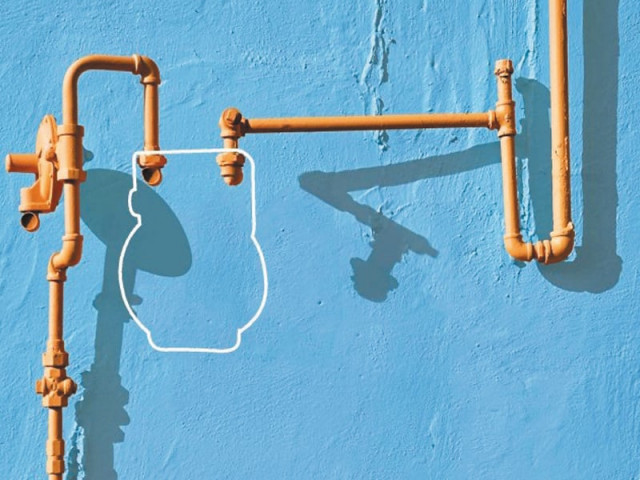Privatisation: Gas utilities unlikely to be attractive when they go under the hammer
Reduction in UFG ceiling to wipe Rs33 billion off their assets.

According to the officials, the domestic consumers are already heavily subsidised and 85% of them pay not more than Rs216 per month, though the actual cost of supplying natural gas to them is more than twice the amount. PHOTO: CREATIVE COMMONS
The federal government is now facing a hard time after the downward revision in the UFG ceiling – which covers gas theft and leakage – in the wake of a court’s decision. Earlier, the government enjoyed a hefty increase in its revenues when the Oil and Gas Regulatory Authority (Ogra), then headed by Tauqeer Sadiq, decided to raise the ceiling from 5% to 7% in 2010.
The decision provided an opportunity to the gas utilities – Sui Southern Gas Company (SSGC) and Sui Northern Gas Pipelines (SNGPL) – to charge an additional Rs44 billion from consumers over a three-year period to cover the loss caused by higher gas theft and leakage. After some adjustments, now Rs33 billion will be transferred to the provinces as the gas development surcharge.
“If the current state of affairs is allowed to continue, these companies would have to be sold at a fraction of their true worth, which will lead to further losses to the government and the people of the country,” an official said. “It would be a miracle if the government manages to fetch even $200 million from the sale of these companies.”
On the other hand, if legitimate claims relating to UFG and operating income are granted, the companies are likely, by a conservative estimate, to attract a price of Rs100 per share, totalling $2 billion.
According to the officials, as the government has agreed with the international financial institutions that it will no longer offer bailout packages to state-owned enterprises, the two enterprises, the only state units which would have made profit for the government, will probably be sold as a scrap.
Since 2005, Ogra has imposed penalties worth tens of billions of rupees on the two companies on account of UFG. Some of the theft and wastage could be controlled by them, but a major part goes unchecked when pipelines are blown up by miscreants, they say.
Income classification
Legal experts point out that Ogra has misclassified certain incomes generated by SSGC and SNGPL through activities like meter manufacturing, sale of gas condensate, sale of LPG, royalty income, late payment surcharge, etc.
The consequence of this classification is that these incomes are excluded from the profits of the companies, resulting in a lower tariff for consumers. The biggest loser is the federal government (and consequently the public at large), which is the majority shareholder in SNGPL (62%) and SSGC (82%).
A conservative estimate puts the actual loss caused to the government due to this classification at Rs50 billion.
Tariffs
According to the officials, the domestic consumers are already heavily subsidised and 85% of them pay not more than Rs216 per month, though the actual cost of supplying natural gas to them is more than twice the amount.
“If the companies are allowed to raise tariffs, the bills of these 85% domestic consumers will increase by only Rs15-20,” an official said.
In the industrial sector, only about 10,000 consumers are connected to the natural gas network and an overwhelming majority of them has no access to gas supply.
The domestic consumer base of the two companies is around seven million households. People in rural areas rely on liquefied petroleum gas (LPG) and kerosene oil as alternative fuels, which cost Rs4,100 and Rs4,600 per month respectively as opposed to the natural gas consumers which pay Rs216.
Published in The Express Tribune, February 20th, 2014.
Like Business on Facebook, follow @TribuneBiz on Twitter to stay informed and join in the conversation.



















COMMENTS
Comments are moderated and generally will be posted if they are on-topic and not abusive.
For more information, please see our Comments FAQ